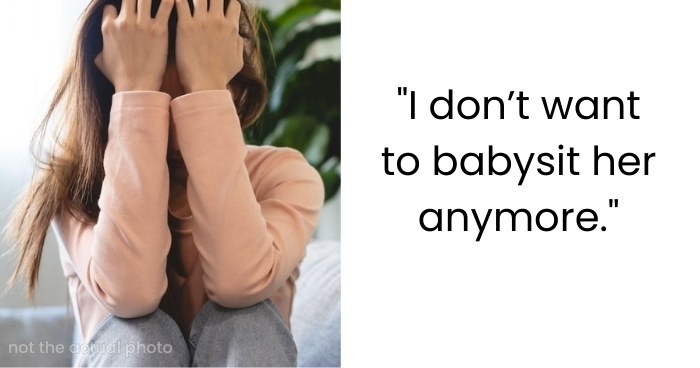‘AITA for telling my older sister that I don’t want to babysit her anymore?’ ‘She just sits in her bed all day.’
You are 18 and your 21-year-old sister has also had support from you and is depressed as well as facing other issues as a result of gravity as her thyroid is off. Physically, she began to stabilize, but mentally, she fluctuated between doing better and flooding, spiraling into chaos — as in, the slightest of anything about her past, her plan, her appointments for talk therapy or the medical checkups she had to undergo. Although therapy and being at clinics has been offered to her in the past, she refuses this stronger assistance and remains in and out of the cycle, depending on family (you specifically) to get by. You have had to take on a caretaker role, juggling your own duties (a part-time job, getting ready for college, and doing the damn dishes) while trying to be a cheerleader for your sister.
Most recently, following another stay in the clinic, she opted to discharge against medical advice. You held her responsible for how her doing this had affected the family including you and you put your foot down saying you won’t “babysit” her anymore. Big argument, she called you an “a-hole”, now you feel like you did something wrong.
Read for more info Reddit
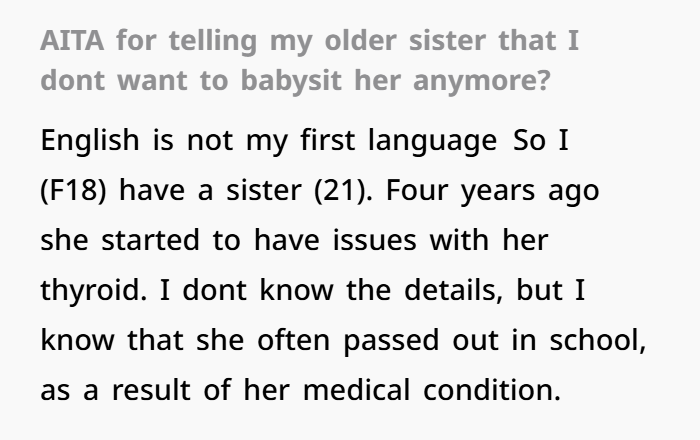
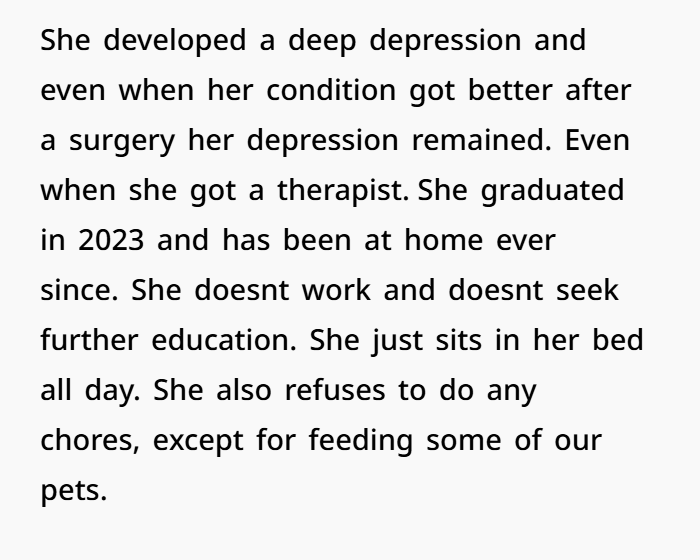
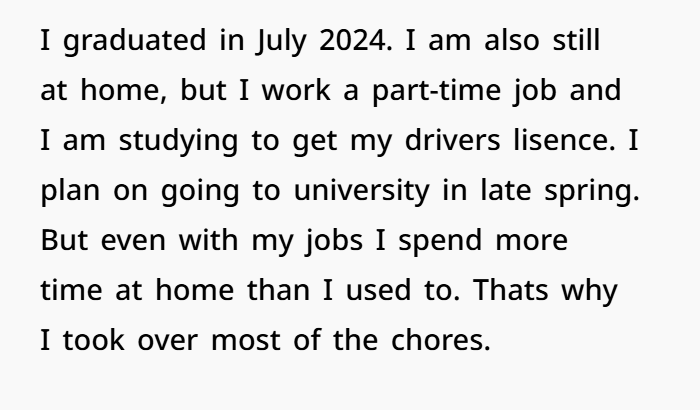

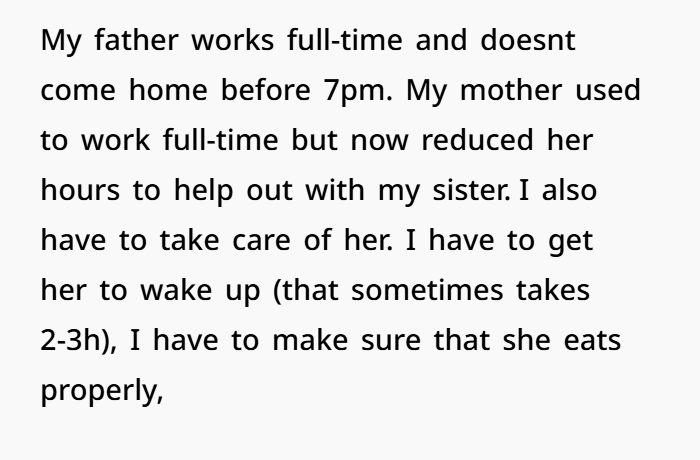
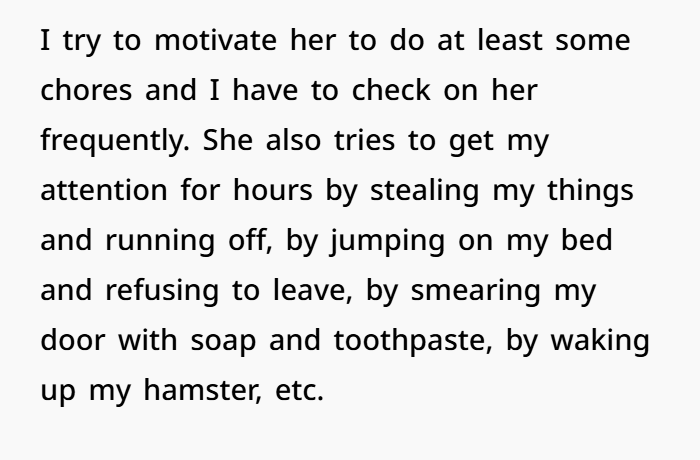
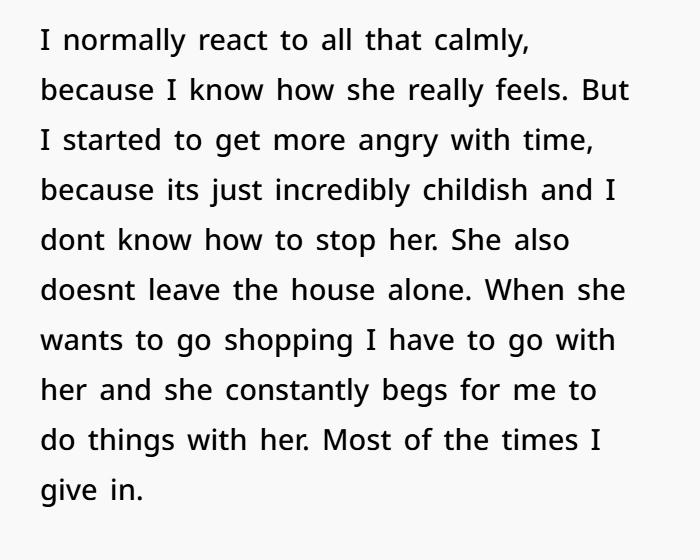
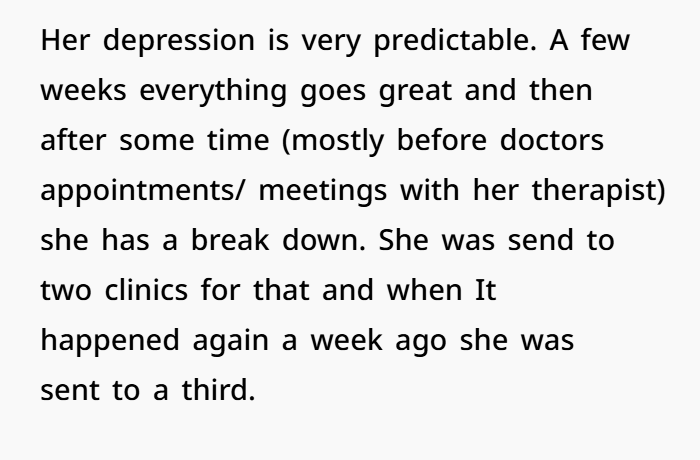
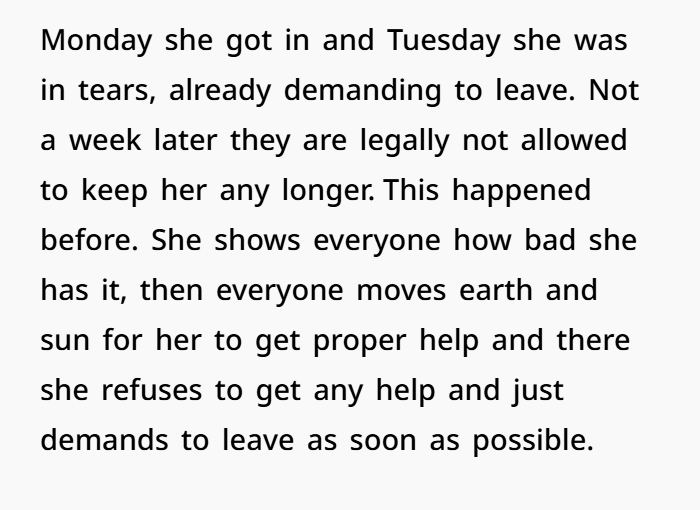
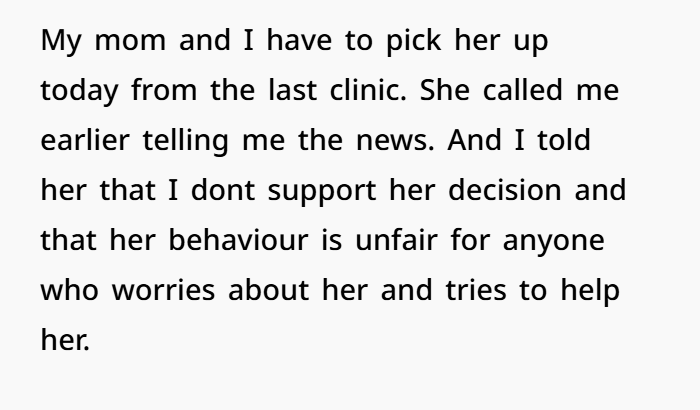
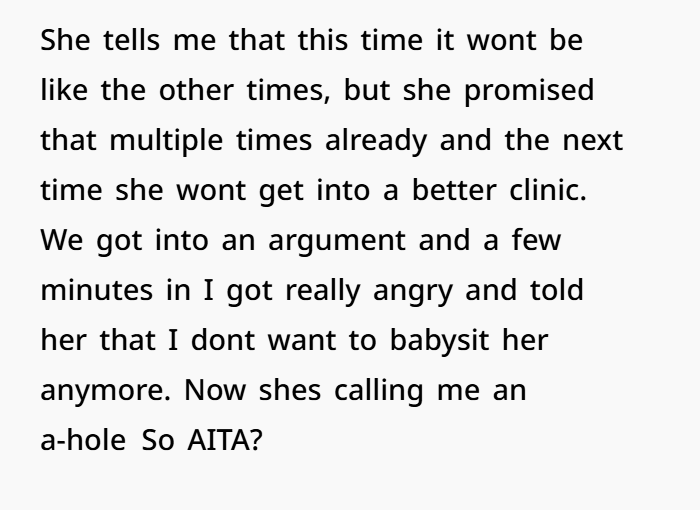
Your situation reflects a complex blend of familial duty, emotional labor, and the toll of mental illness on a household. While helping family is often seen as a natural obligation, the demands on you as an 18-year-old—essentially managing your sister’s daily life—far exceed what is reasonable.
Impact of Caregiver Fatigue
Caregiver fatigue is a well-documented phenomenon, particularly when someone becomes responsible for a family member with chronic conditions. Research shows that long-term caregiving can lead to burnout, characterized by emotional exhaustion, resentment, and feelings of helplessness. You’ve taken on responsibilities such as waking your sister, ensuring she eats, and dealing with disruptive behaviors, all while juggling your own life. It’s clear these demands are overwhelming, especially given your age and future aspirations.
Sister’s Resistance to Help
Your sister’s refusal to engage meaningfully with clinical or therapeutic help compounds the situation. Mental health professionals emphasize the importance of patient buy-in for effective treatment, and without it, recovery can stall. This pattern—seeking help only to reject it—is frustrating for caregivers and creates cycles of crisis that affect the entire family.
Legal and Ethical Considerations
In many jurisdictions, adults can refuse treatment unless deemed a danger to themselves or others. However, when this choice impacts caregivers, families are encouraged to seek professional support. Family therapy might provide a space for your sister to understand the strain her behavior puts on the household while allowing you to express your frustrations constructively.
Boundary Setting as Self-Preservation
Setting boundaries is essential in relationships, especially with loved ones dealing with chronic issues. Boundaries are not acts of cruelty but rather ways to protect your mental health and preserve the relationship. By saying you no longer want to “babysit,” you’re advocating for yourself after years of carrying an unfair burden. This stance aligns with advice from mental health professionals, who stress that caregivers cannot pour from an empty cup.
Here’s what top commenters had to say about this one:
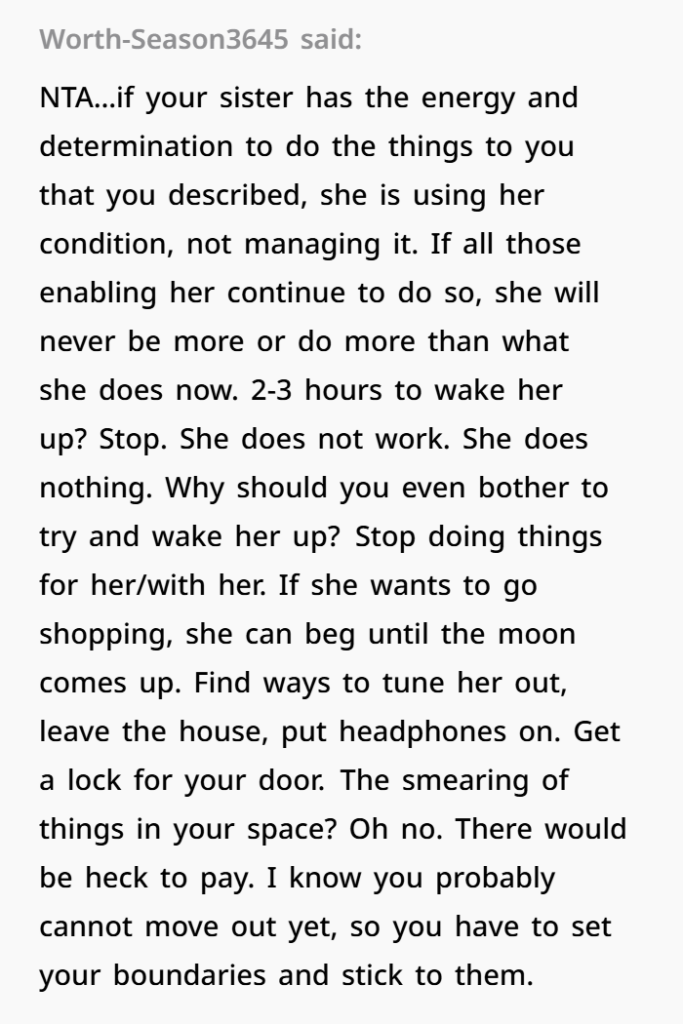
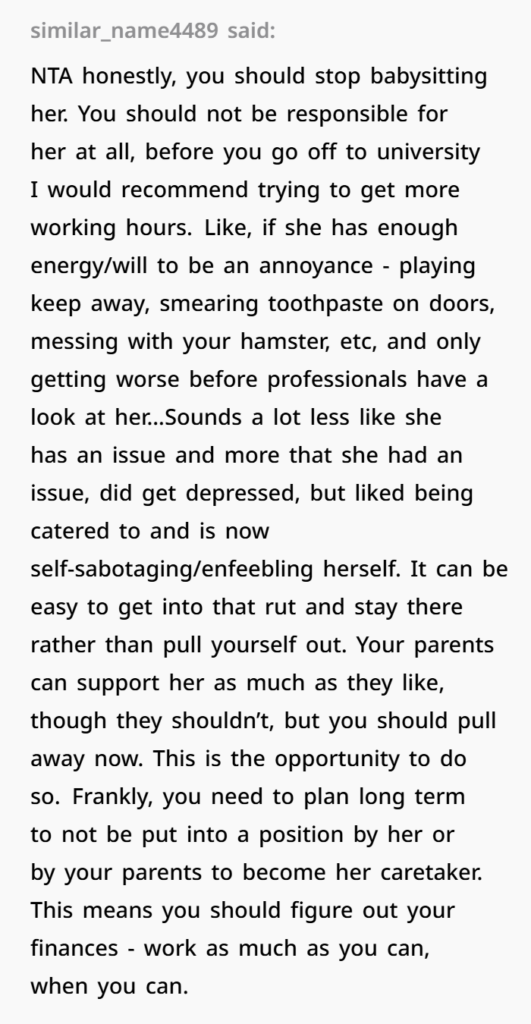
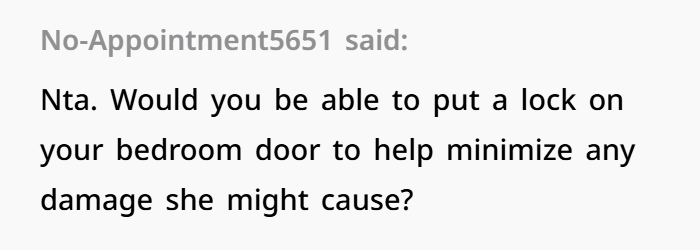
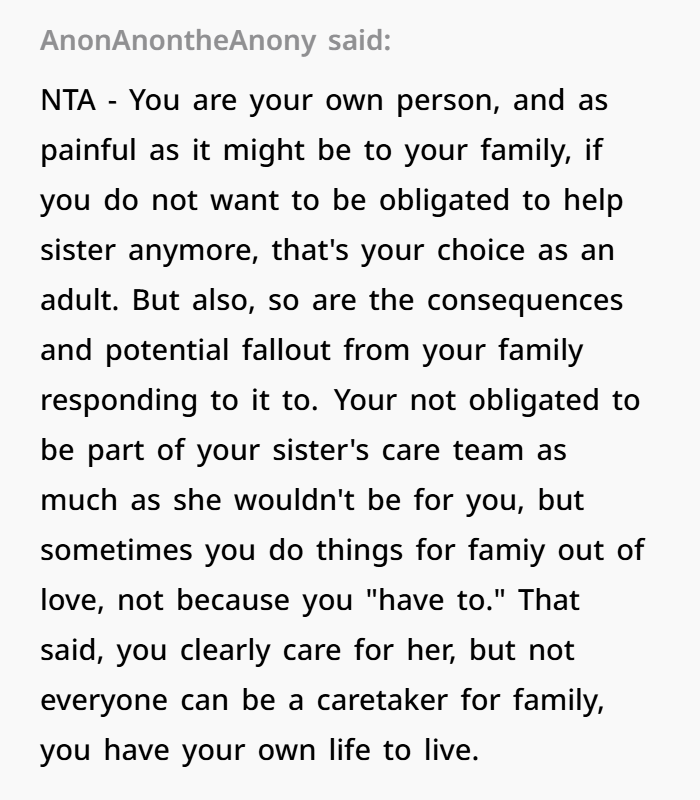
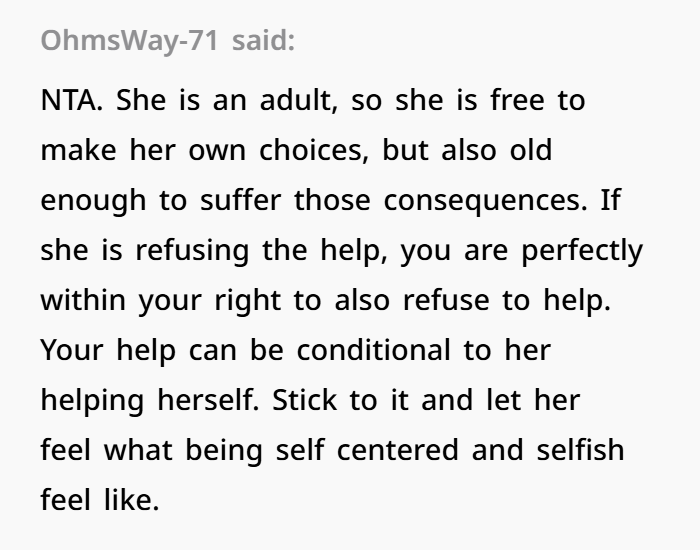
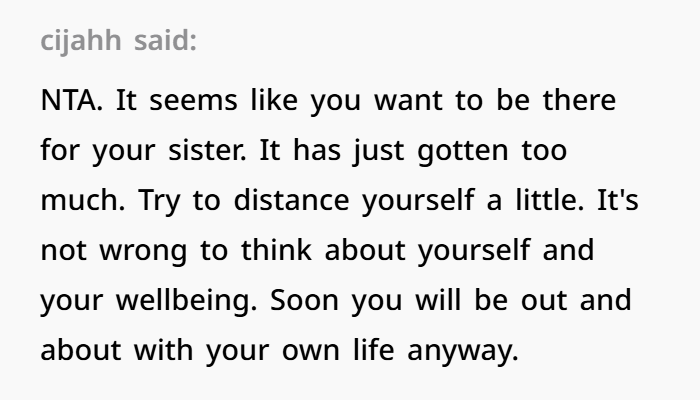
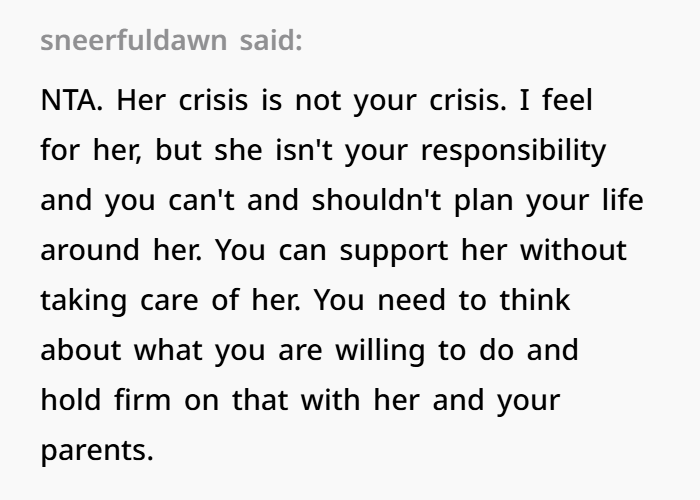
That also does not make you the a-hole for venting a little and telling people what you need. Your sister’s struggles are real, but so are your needs and feelings. Especially during such a critical point in your life, the full burden of her care should not fall on you. Getting some outside support for your family, including yourself and some therapy in the particular to deal with these dynamics may be in order, because there are tools for you and your sister that may be useful in moving beyond this, more healthily.

